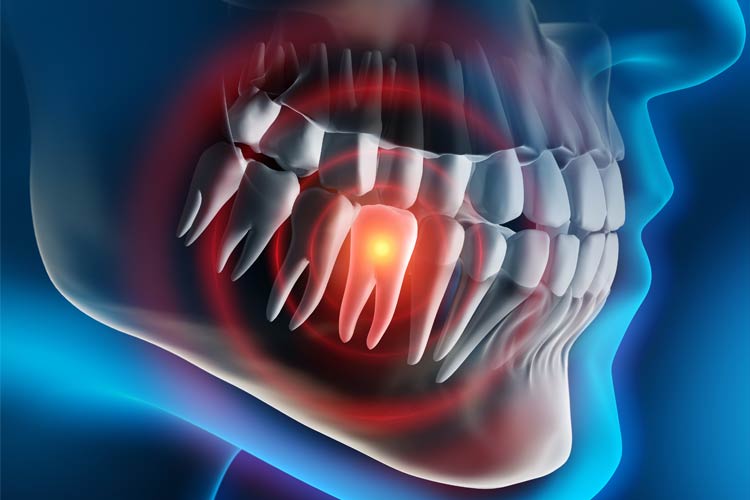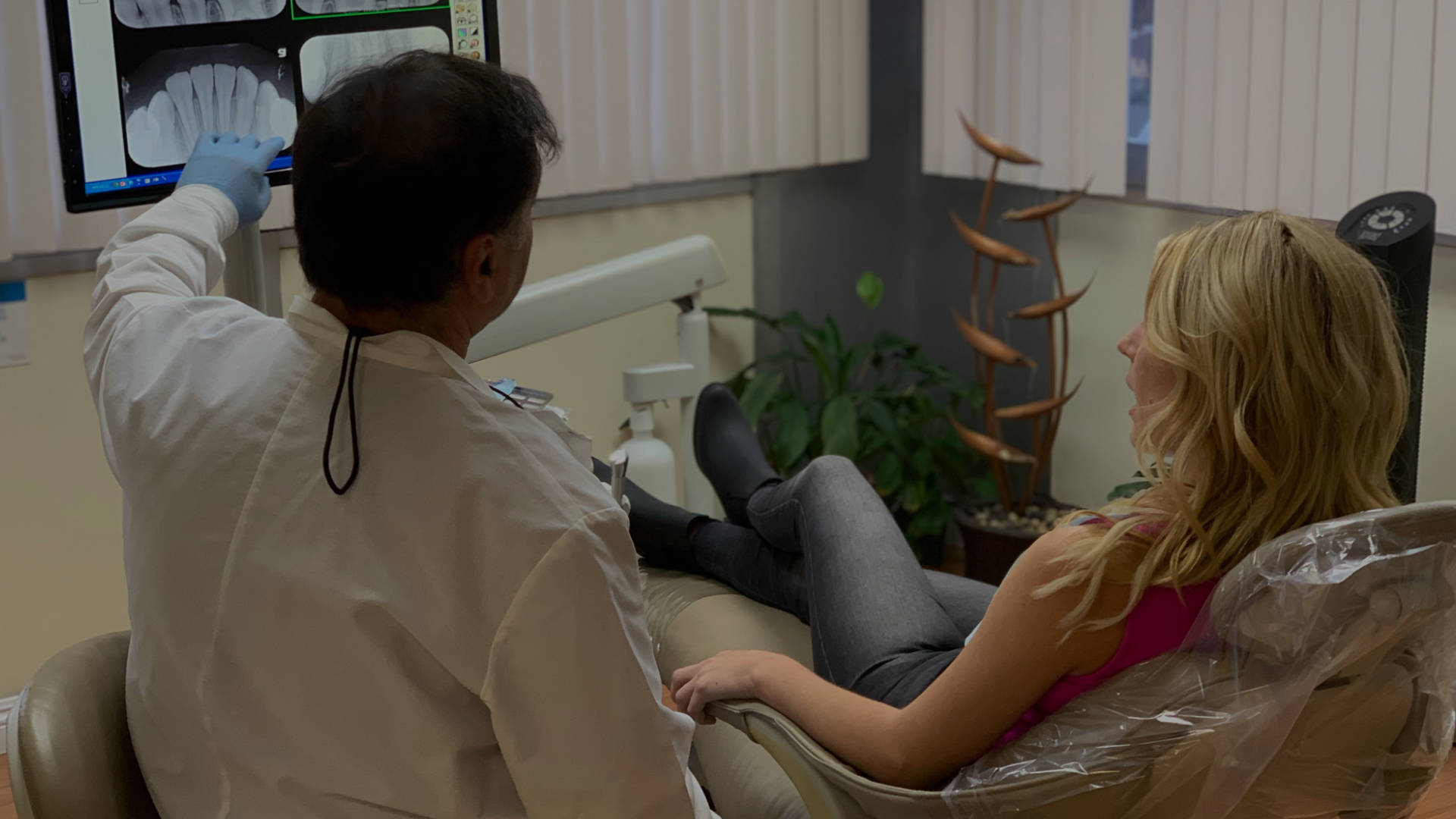-
Tooth Extractions Los Angeles, CA
Do you need tooth extraction?
Here’s a complete tooth extraction guide
for Los Angeles Residents.
Emergency 24/7 appointments available.
Pain Free Tooth Extraction
24/7 Appointment for dental emergencies
Everything You Need to Know About Extractions
Teeth extractions are never a pleasant topic, but sometimes they are necessary for your dental health. Here, you'll have an experienced dentist who will give you a non-invasive extraction. The Smile Angels of Beverly Hills will give you a holisticapproach in all of your treatments.
Keep in mind that every dentist’s top priority is to preserve your teeth. If the dentist recommends an extraction, it’s because there’s no alternative and it’s in your best interest. Smile Angels of Beverly Hills wants you to be informed.
Cost of Tooth Extraction in Beverly Hills, C
The average costs for teeth extractions in Los Angeles range from $300-$1000, all-inclusive. The cost depends on the type of extraction and it’s related procedures such as bone graft, collagen membrane, and sutures. On the other hand different types of sedition’s are available.
There are unique scenarios that the cost could raise over $1000. At Smile Angels of Beverly Hills we offer tooth extraction consultation and pre-evaluation. Financing with low monthly payments is available for patients without insurance.
Insurance and Financing
Smile Angels of Beverly Hills accepts most insurance. In most cases, insurance will cover your extraction. We also offer financing with low monthly payment plans.
Here at Smile Angels of Beverly Hills, we do everything we can to make sure you are as comfortable as possible. If you have any more questions about your extraction, don't hesitate to ask.

No obligation initial tooth extraction consultation (310) 201-9001
Reasons for Teeth Extractions
Reasons for needing an extraction will vary. The most common is that you have damage beyond repair. Even those with the greatest of dental health may need an extraction under extreme circumstances.
Infection or Risk of Infection
A common reason for an extraction is problems related to infection. If left untreated, infections can spread to neighboring bone or tissue. In extreme cases, untreated infection leads to sepsis, a serious condition that opens the door to a new range of health problems throughout your entire body.
If you have a combination of any of the following symptoms, you could have a dental infection:
- Bad breath
- Fever
- Pain
- Swelling in the gums
- Swollen Glands
- Bitter taste
- Swollen Jaw
In these cases, an extraction may be necessary to prevent the infection from spreading. In other cases, you may be at an increased risk for infection due to a compromised immune system. For example, if you’re on chemotherapy or receiving an organ transplant, your dentist may recommend an extraction.
Crowded Mouth
Another reason you may need an extraction is due to having too many teeth in your mouth. If your dentist needs to prepare your mouth for orthodontia or braces, they may need to pull teeth. Orthodontiainvolves the use of devices to straighten your teeth, correct bite, align your teeth or close gaps. If your mouth is already overcrowded, the treatment will not work because there’s no room for your teeth to realign.
Wisdom Teeth
It’s not uncommon for young adults to need wisdom teethremoved. Your wisdom teeth could get stuck because your mouth is too small to make room for them. Sometimes wisdom teeth push into existing teeth as they grow in, causing damage.
Wisdom teeth may need to be removed in cases such as:
- Damage to your other teeth
- Alignment
- Sinus issues
- Inflamed gums
In some cases, you may not need wisdom teeth removed. Oftentimes though, dentists prefer to remove these teeth or molars to prevent problems later in life. As you get older, your bones harden, which could make wisdom teeth removal harder. Even if you’re not experiencing pain, it could be in your best interest to have your wisdom teeth removed if your dentist recommends it.
Types of Extractions
Single Root and Multi-Root Extractions
A single root extraction applies to one removal. A multi-root extraction applies to multiple teeth. This procedure is more complex and requires surgical extraction. Don’t let the word “surgical” scare you. The dentist will separate the root before the extraction for a non-invasive procedure.
Simple Extractions
Your dentist will use an instrument, called an elevator, to raise the tooth and loosen it. Using dental forceps, your dentist will rock the tooth until it loosens enough to take out.
Your dentist will opt for a simple extraction whenever it’s necessary.
Surgical Extraction
A surgical extraction may be necessary if you have impacted or broken teeth below the gums.
The dentist will elevate soft tissues covering the tooth. They may also need to remove some neighboring jawbone for easier access.
Related Procedures
Bone Graft
Following your extraction, you may want dental implants. Dental implants are a nice alternative to dentures and leave a natural finish. In order for you to get dental implants, you may need a bone graftif your jaw is too soft or thin to keep an implant in place. Implant surgery will fail if it’s not in securely.
During a bone graft procedure, the dentist will need to take some bone from another part of your body. In some cases, they may also get bone from another source, but it’s more common to take existing bone from you, an autograft.
The dentist will then cut open the area and shape the new bone to your jawbone. They’ll then hold it in place using screws, pins, wire, or similar material.
You’ll then have to wait, probably several months, for the new bone to fuse to your jawbone. Once that’s happened, the dentist can complete your implants.
Collagen Membrane
In some cases after your extraction, the dentist may recommend a collagen membraneor gum graft. Collagen membrane protects your empty socket. Sometimes, gums can grow with the bone and a collagen membrane prevents this from happening. Collagen is a type of protein that helps to form a barrier. You may have heard of it in relation to cosmetic procedures.
The collagen membrane looks like a little piece of white cardboard. The dentist will shape it to fit over your jawbone. It will dissolve on its own. Depending on the type you get, it may take a few days or several months. You may need a collagen membrane in connection with the bone graft. The dentist will discuss this with you if you need one.
Sutures
You’ll most likely get dissolvable sutures, or stitches, following your extraction. They’ll close secure your gum tissue back in place while it heals. The sutures will dissolve on their own once the dentist applies them with a curved needle.
Sutures are sterile and they’re made of either natural or synthetic materials such as:
- Collagen
- polydioxanone
- purified catgut
- polylactic acid
Sedation Options
Smile Angels of Beverly Hills offers different options for sedation. Sedation options include:
- Oral medications will make you feel relaxed and calm if you take them as prescribed
- Nitrous Oxide that you’ll inhale through a mask over your nose
- Intravenous sedation that provides you with the deepest state of relaxation

Call (310) 201-9001 to Schedule Your Consultation
Smile Angels of Beverly Hills
GET IN TOUCH...
Schedule your dental consultation today!


